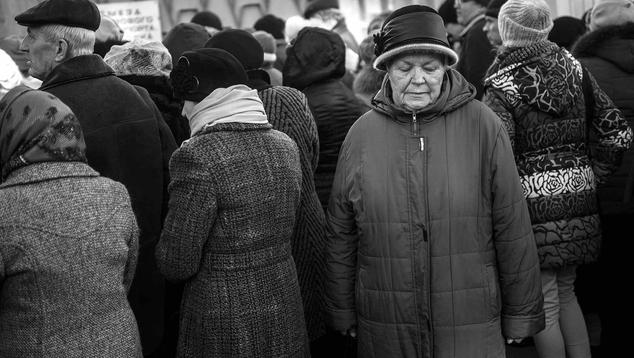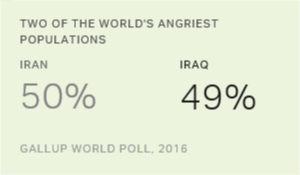Story Highlights
- Negative Experience Index hits record high of 30
- Nearly four in 10 experienced worry (38%), stress (37%) the previous day
- Central African Republic displaces Iraq as most negative country in the world
WASHINGTON, D.C. -- The world in 2017 tilted more negative than it has in the past decade, according to the latest results on Gallup's Negative Experience Index. The index, which annually tracks people's experiences of stress, anger, sadness, physical pain and worry, reached a new high of 30.
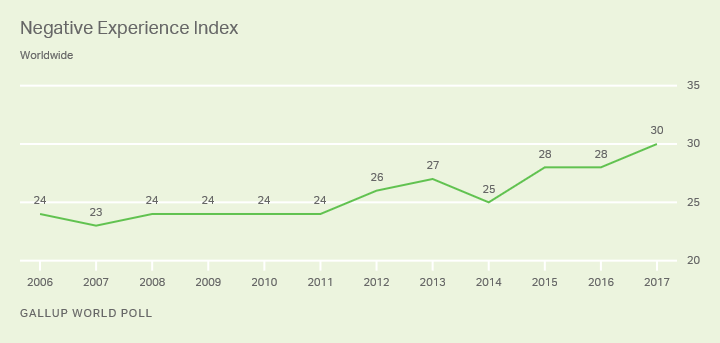
The global Negative Experience Index score was pushed higher in 2017 because all negative emotions and experiences that Gallup uses to compile its index -- except anger -- reached new highs. Nearly four in 10 people said they experienced a lot of worry (38%) or stress (37%), and slightly more than three in 10 (31%) experienced physical pain. At least one in five experienced sadness (23%) or anger (20%).
Overall worry and stress levels increased two percentage points from the previous year, while sadness and physical pain were each up one point. Experiences of anger remained unchanged.
Central African Republic Displaces Iraq as Most Negative Country in the World
Out of the 146 countries and areas that Gallup surveyed in 2017, Central African Republic, with a score of 61, was the most negative country in the world. This score was not only the highest in the world in 2017, but also the highest Gallup has recorded for any country in the past decade.
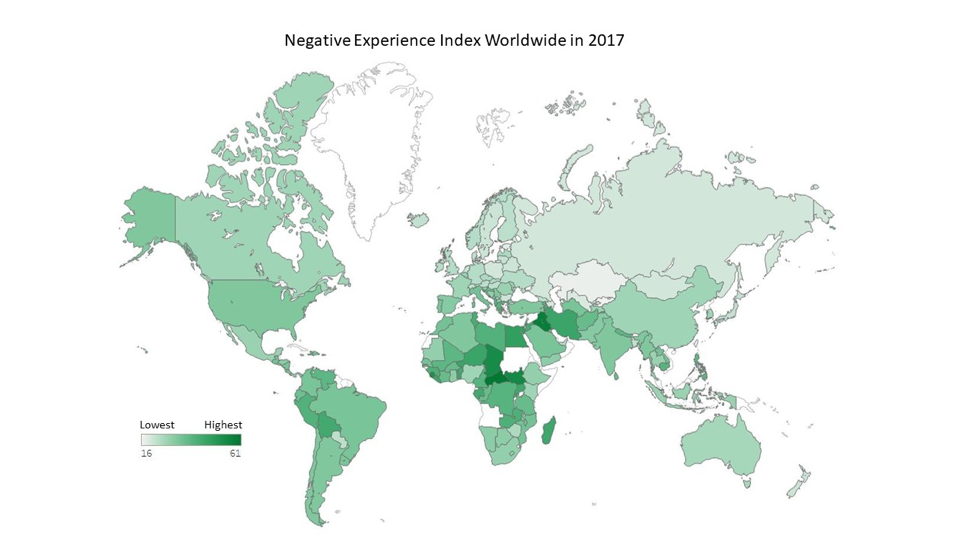
The Negative Experience Index in CAR reflects a country in crisis: Renewed fighting between armed groups in the country forced tens of thousands from their homes in 2017, and the insecurity prevented Gallup from interviewing people in a number of prefectures -- representing about 40% of the population.
Negative experiences spiked in 2017 in CAR, with 76% of residents experiencing physical pain and nearly as many (74%) reporting that they worried a lot the previous day -- both percentages are the highest on record for any country in the past decade.
Nearly half of CAR residents also said they felt stressed (48%) and angry (45%). Only Iraqis were more likely than CAR residents to say they felt angry the previous day, with 50% of their population feeling this way. CAR residents, however, by far were not the most stressed population. In fact, the 48% who said they felt stressed was about the same as in the United States (49%).
Scores like the ones in CAR vaulted the country ahead of Iraq, which up until 2017 had the highest Negative Experience Index scores for four years in a row. With a score of 59, Iraq continued its streak of being among the top five most negative countries in all years since 2008. The next-highest country on the list is South Sudan, where the score stayed at 55 amid its civil war. Insecurity kept Gallup from interviewing in areas that represented about 44% of the population.
| Negative Experience Index | |||||||||||||||||||||||||||||||||||||||||||||||||||||||||||||||||||||||||||||||||||||||||||||||||||
|---|---|---|---|---|---|---|---|---|---|---|---|---|---|---|---|---|---|---|---|---|---|---|---|---|---|---|---|---|---|---|---|---|---|---|---|---|---|---|---|---|---|---|---|---|---|---|---|---|---|---|---|---|---|---|---|---|---|---|---|---|---|---|---|---|---|---|---|---|---|---|---|---|---|---|---|---|---|---|---|---|---|---|---|---|---|---|---|---|---|---|---|---|---|---|---|---|---|---|---|
| Central African Republic | 61 | ||||||||||||||||||||||||||||||||||||||||||||||||||||||||||||||||||||||||||||||||||||||||||||||||||
| Iraq | 59 | ||||||||||||||||||||||||||||||||||||||||||||||||||||||||||||||||||||||||||||||||||||||||||||||||||
| South Sudan | 55 | ||||||||||||||||||||||||||||||||||||||||||||||||||||||||||||||||||||||||||||||||||||||||||||||||||
| Chad | 54 | ||||||||||||||||||||||||||||||||||||||||||||||||||||||||||||||||||||||||||||||||||||||||||||||||||
| Sierra Leone | 52 | ||||||||||||||||||||||||||||||||||||||||||||||||||||||||||||||||||||||||||||||||||||||||||||||||||
| Egypt | 47 | ||||||||||||||||||||||||||||||||||||||||||||||||||||||||||||||||||||||||||||||||||||||||||||||||||
| Iran | 45 | ||||||||||||||||||||||||||||||||||||||||||||||||||||||||||||||||||||||||||||||||||||||||||||||||||
| Niger | 45 | ||||||||||||||||||||||||||||||||||||||||||||||||||||||||||||||||||||||||||||||||||||||||||||||||||
| Palestinian Territories | 45 | ||||||||||||||||||||||||||||||||||||||||||||||||||||||||||||||||||||||||||||||||||||||||||||||||||
| Liberia | 44 | ||||||||||||||||||||||||||||||||||||||||||||||||||||||||||||||||||||||||||||||||||||||||||||||||||
| Madagascar | 44 | ||||||||||||||||||||||||||||||||||||||||||||||||||||||||||||||||||||||||||||||||||||||||||||||||||
| Uganda | 44 | ||||||||||||||||||||||||||||||||||||||||||||||||||||||||||||||||||||||||||||||||||||||||||||||||||
| Gallup World Poll | |||||||||||||||||||||||||||||||||||||||||||||||||||||||||||||||||||||||||||||||||||||||||||||||||||
As in past years, people in most of the countries with the highest negative scores in 2017 were contending with some type of discord, and many at the top of the list last year have been there for several years. Egypt, Palestinian Territories, Madagascar and Niger were the only countries or areas on the list in 2017 that were not on the top of the list the previous year.
Sub-Saharan Africa Sees Negative Surge
The Negative Experience Index has trended upward in several global regions over the past decade, but nowhere more so than in sub-Saharan Africa. From a low point of 20 in 2010, the index reached a new high point of 34 in 2017, second only to the Middle East and North Africa region (40).
In 2017, the Negative Experience Index was at a 10-year high point in 24 out of 35 countries surveyed in sub-Saharan Africa. In 28 countries, the trend has risen by more than 10 percentage points since 2010 or the closest year for which data are available. In only one country in the region -- the small island nation of Mauritius -- has the index score fallen during that time.
Change in Negative Experience Index Since 2010
(or closest year for which data are available)
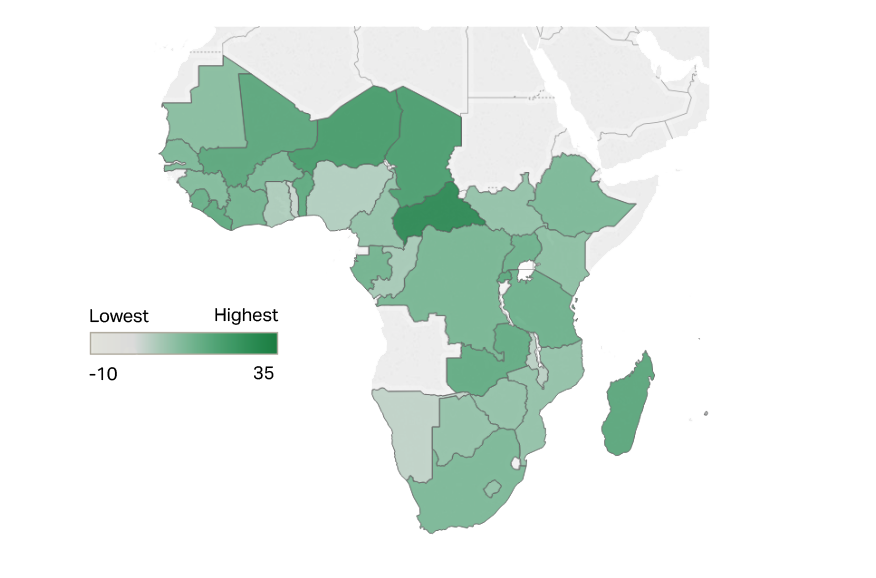
Implications
Gallup's Negative Experience Index and its companion, the Positive Experience Index, measure life's intangibles -- feelings and emotions -- that traditional economic indicators such as GDP were never intended to capture. Each index provides a real-time snapshot of people's daily experiences, offering leaders insights into the health of their societies that they cannot gather from economic measures alone.
Collectively, the world is more stressed, worried, sad and in pain today than Gallup has previously seen it, which should give leaders some pause -- particularly in the areas that are suffering most. But regardless of where a country may fall on either of these indexes, all leaders need to be monitoring the emotional temperature of the people they lead.
Read the full results on Gallup's Negative Experience and Positive Experience Index in Gallup's 2018 Global Emotions Report.
For complete methodology and specific survey dates, please review Gallup's Country Data Set details.
Learn more about how the Gallup World Poll works.
